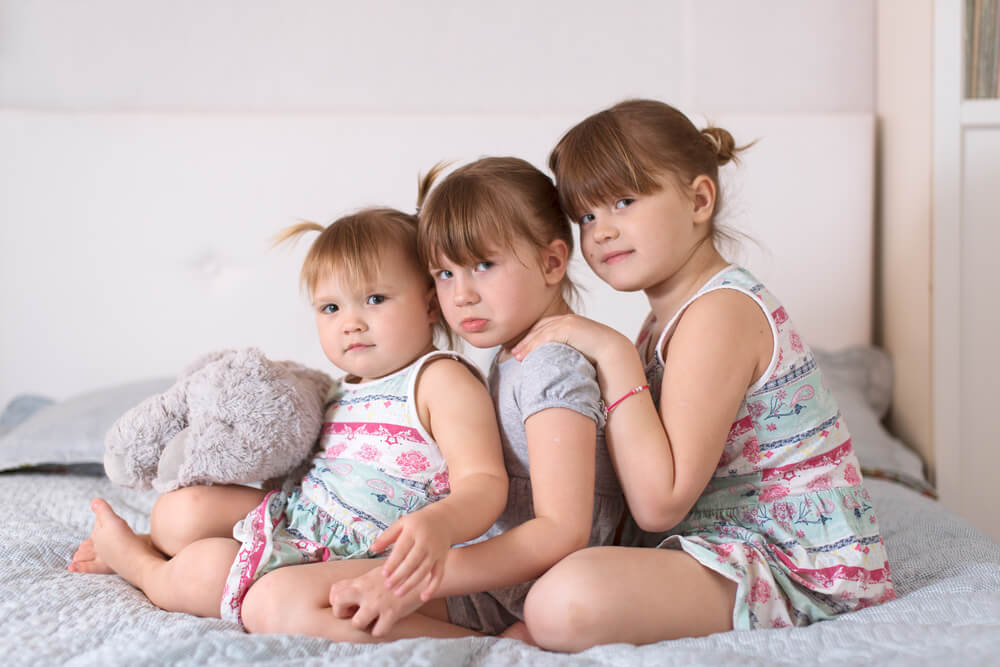You might be a middle child, or perhaps you have a sibling who is a middle child. Whatever the case, you could be wondering if the “middle child syndrome” is fact or fiction. Although we believe a middle child is the “creme in the oreo” (hint: the best part!), there are many middle child stereotypes you might already be aware of. But what is middle child syndrome, and how does this affect children’s personality? In this article, you’ll learn about the famous middle child syndrome, social influence, and how you can help your child cope with being “in-between.”
Remember, some individuals with middle child syndrome may have severe mental health issues such as depression. Therefore, we always suggest consulting a healthcare professional first before attempting self-medication. For example, if you are looking for expert results, teen depression treatment in Miami is an excellent choice.
That said, here is everything you need to know about middle child syndrome.
What is Middle Child Syndrome?

Is a child’s personality linked with the birth order in the family? According to Alfred Adler, middle child syndrome is more than real. Since it’s tied to social influence, middle child syndrome affects the child’s overall development.
So what exactly is middle child syndrome? Based on Adler’s theory from 1964, children born in the same family but with varying birth orders can differ in psychological development. Namely, the children’s personality will vary whether they are first-born, middle children, or the youngest. Here’s a rough overview of the children’s personality models:
The oldest child tends to be more authoritarian. Moreover, the oldest children can feel powerful due to the high expectations from parents or caregivers. Typically, the oldest child is pressured to be the role model for the younger siblings. Usually, these children are confident, conscientious, and responsible, and they are more likely to mirror the attitudes and beliefs of their parents. Also, the oldest children tend to be natural leaders.
Middle children tend to be mediators, and they seek fairness in all situations. Usually, middle children have a strong sense of not belonging to the household (when compared to the other siblings). Since middle children are sandwiched between older and younger siblings, they may have trouble “fitting in” and often feel like the “black sheep” of the family.
Finally, the parents usually spoiled the youngest child (due to being the “baby of the family”). Being the youngest may have a lot of benefits (such as not having to adhere to strict parental rules) and downsides. For example, the youngest child may have trouble rising above the older siblings and being treated as adults. Also, the middle child can suffer from mental health issues due to repeatedly feeling neglected and unappreciated.
In essence, what is middle child syndrome? This syndrome refers to the difference in the children’s personality due to birth order. We’ve all heard about the middle child stereotypes. For instance, common middle child stereotypes include feeling neglected, ignored, and overshadowed by younger or older siblings.
Is the Middle Child Syndrome Real?
Middle-child stereotypes are everywhere. For instance, if you’re familiar with the TV show about being a middle child called “Malcolm in the Middle,” you might already have an idea of what it can feel like to be “in-between.” But the question is, is the middle child syndrome based on facts or is it just a myth?
According to a reputable book called The Middle Generation Syndrome, when a household has three children, the first-born gets to be the oldest, while the youngest is the baby. So, unfortunately, the middle child can feel left out. Also, parents tend to have less energy to give when the children are close in age.
Some research also shows that birth order can influence children’s personality. Namely, a paper in the Journal of Genetic Psychology found that after analyzing 404 children, the first-born was less likely to feel depressed and anxious (compared to the middle and the youngest children). Moreover, the eldest child in the family tends to report boosted levels of self-esteem. However, another more recent paper titled Examining the Effects of Birth Order on Personality revealed no links between birth order and emotional stability, imagination, extraversion, and similar. Based on the conclusions of this newer paper, birth order doesn’t have lasting effects on personality traits. All in all, the middle child stereotypes could only be just that, stereotypes.
How Can I Handle Middle Child Syndrome Behavior?
Middle children can feel left out, neglected, depressed, and anxious. Here are some ways to help your child or yourself if you think you are suffering from the “middle child syndrome.”
Always offer reassurance. Try to explain the reason for punishments and rewards and let them know that it has nothing to do with the performance of their siblings. Also, refrain from comparing the middle child to older or younger siblings. Every child is unique.
Also, make sure to give your middle child enough attention. For example, if you lavish your older child with praise, your middle child can feel left out. Make sure to be mindful of treating all of your children equally.
It’s also a good idea to maintain open communication. Talk to your child about feelings, needs, and wants. Encourage openness and create a safe space for honest conversations. Hand-me-downs should also be minimized. For example, an occasional “second-hand” piece of clothing is fine, but the middle child will respond better to something new. Remember, try to make your middle child feel special and loved.
Creating memories with your middle child is crucial. Treat your middle child special, get them a cake for their birthday, take them to the zoo, and treat them to something unique they will never forget. Don’t allow your child to fall victim to the social influence and stereotypes related to middle children.
Five Characteristics of Middle Children

Although the middle child syndrome isn’t a medical diagnosis, certain common traits of middle children shouldn’t be overlooked.
- They are pleasers and peacemakers who are willing to negotiate.
- They can be highly competitive (either in getting better grades, doing better in sports, or learning from older sibling’s mistakes)
- They try to fit in and find a clear role inside and outside of the family.
- They are friendship-oriented and independent.
- They tend to act out to get attention (due to feeling neglected by parents or caregivers).
It can be challenging to grow up as a middle child. You can feel ignored, unappreciated, and neglected. However, being the middle child can also have benefits. For instance, you can learn from the mistakes of your older sibling and get better results. Also, you can be a leader for your younger sister or brother. According to experts, middle children make excellent team players and colleagues. Due to their peacemaker nature, they work excellently in larger teams. The sense of independence can also help middle children grow into fully functioning, successful adults.
Give us a Call Today
Being the middle child can have fantastic benefits and, unfortunately, some downsides. Middle children can feel left out, unloved, and unacknowledged by parents and caregivers. If you are a middle child or you have a child suffering from mental health issues due to being “in the middle,” it might be time for professional help. Book an appointment with us today and reclaim your confidence.




